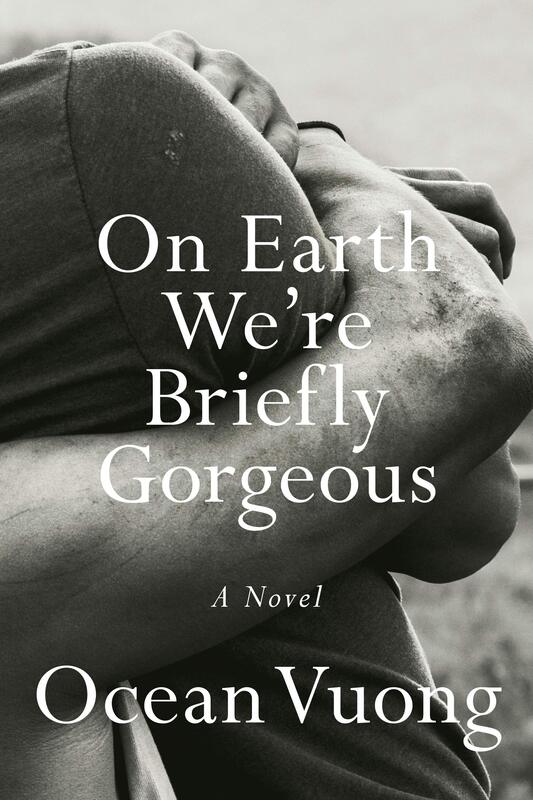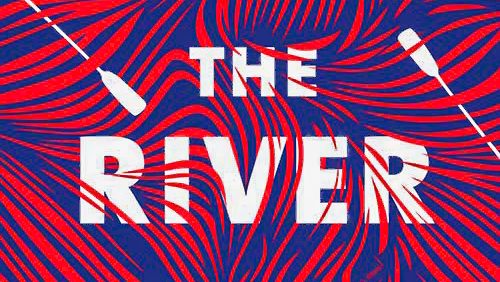|
Ocean Vuong, who emigrated from Ho Chi Min City to Hartford, Connecticut as a child, sprang into mainstream literary consciousness in 2016 with Night Sky with Exit Wounds, a remarkable collection of poems on immigration, intergenerational trauma, and queerness. The work is one of the highest regarded contemporary collections on the market; Vuong’s honors include a Whiting Award and the T.S. Eliot Prize.
His first novel, On Earth We’re Briefly Gorgeous, also speaks of multi-generational PTSD, charting the fate of a Vietnamese-American family struggling to settle into working class life in 1990’s New England. Vuong frames his novel as a letter from Little Dog, a young gay writer in his late twenties, to his illiterate mother Rose. Vuong published a version of the first chapter of the book in the New Yorker in 2017 for Mother’s Day. Little Dog writes of his love for his mother and his grandmother, both of whom are reeling from the traumas of war, immigration, loss of language, and Alzheimers. And he recalls how the violence of the Vietnam War transmutes itself into the frequent physical attacks rained down on Little Dog by his mother. "I didn't know," Little Dog writes to her, "that the war was still inside you ... [and] that once it enters you it never leaves - but merely echoes, a sound forming the face of your own son." Those readers familiar with Vuong’s poetry will recognize the same calibrated orality; he turns beautiful phrases which lend his pronouncements the timeless quality of deeply-earned wisdom. “Freedom is nothing but the distance between the hunter and its prey.” And his writing contains the line-by-line density of poetry: the rush of a joint makes Little Dog, feel ‘skull-less;’ a heart ripples in an emaciated body ‘like a trapped fish;’ a piano ‘drips its little notes, like rain dreaming itself whole.’ Given that a novel in verse ended up on last year’s Booker shortlist, to redress the balance I’d be happy to see this up for the T S Eliot Prize. There is a new avant-garde afoot, and Vuong claims his own form, making the kind of grand gestures few writers would dare. Sometimes it’s beautiful, sometimes pretentious, sometimes both at once. And as compelled as a reader might be by the gorgeous language, or the political force and wisdom of Vuong’s insights, the novel lacks a compelling structure and sometimes loses its voltage through repetition, with many of the better observations dulled by the presence of so many similar ones throughout. This is a work worthy of attention for its exploration of class, race, sexuality and generational trauma. The committed reader will find much of value, but others may give up before they reach the end. For me, this novel comes at a time when I am examining my own past. It comes at a time when Eugene Lee Yang releases an artistic articulation of a similar journey. To read books like these in a turbulent and confusing time can be a miraculous way to see one’s place in the universe as intentional. On earth we are not always gorgeous; and neither are the events in this novel. But there is a certain awe that comes in the wake of our worst moments, right alongside the best ones. ~ Ann Scott Published Jun. 28, 2019 in Aspen Daily News
1 Comment
After last summer in the Roaring Fork Valley, the last way one would want a story to begin is, “They had been smelling smoke for two days.” However, it is still a powerful opening, makes for a fantastic, slow-burn of an adventure story and immediately sets the ominous mood in Peter Heller’s latest novel, “The River.”
“The River” is set in the deep north woods of Canada on the fictional river running into the Hudson Bay. Two friends, Jack and Wynn, are on a paddling expedition and escaping their collegiate rigors at Dartmouth by getting out to the wilderness — one of their shared loves that solidified their friendship. The two feel like they came out of a western novel: Jack, the tough-spirited ranch kid from Colorado who runs on intuition and instinct, is almost a perfect opposite of Wynn, the taller gentler one with “all freckles and unruly curls and earnestness … (and) looked like a kid who had never had a mean thought in his life.” They also feel like a portrayal of a younger Heller. The boys are drawn together by a mutual respect — “guys who seemed to be able to more than handle himself in the woods” — and a literary way of looking at the world. During their first meeting, they talk books and share an affinity for Louis L’Amour, Henry David Thoreau, poetry and the classics. You can imagine the author connecting with people through those two litmus tests: Wilderness and literature. You can also sense Heller’s personal love of wild places; he writes about them in perfect lyrical descriptions of nature: “The cold, clean scent” of moving water and “earth smells of falling leaves slick with rain.” Paddling a river, “They loved how the darkness amplified the sounds – the gulp of the dipping paddles, the knock of the wood shaft against the gunwale. The long desolate cry of a loon. The loons especially. How they hollowed out the night with longing.” Despite this tranquil setting, the novel builds an uneasy atmosphere early on, not only with the sighting of a large wildfire someplace far in the distance, but also a run-in with some seemingly unsavory characters, Jack’s recalling of a tale by Edgar Allen Poe and his general sense that something doesn’t feel right. The two also have a rifle with them, which is normal for a canoe trip in northern Canada, though its appearance makes you think of Anton Pavlovich Chekhov’s advice to writers: “Remove everything that has no relevance to the story. If you say in the first chapter that there is a rifle hanging on the wall, in the second or third chapter it absolutely must go off.” Early on, the boys come across a couple arguing at a fog-shrouded campsite on the river bank, and through Wynn’s moral judgement, return to try to warn them about the fire, but they have disappeared. When they later come across the man paddling alone down river, the suspense is fully set, and the pace of the story builds momentum, as though the tumultuous river were pulling you without a choice. Through the boys’ viewpoint, the reader is left wondering whose perception to trust, as the fire roars beyond the horizon with “low hisses, a ticking and chirping, a simmering crackle like a million crickets, hellfire crickets, singing of apocalypse and char.” Peter Heller sums it up perfectly in his thoughts of writing: “Narrative can be like a river. You follow it around a corner, and you never know what’s going to be there. Before you know it, the story comes into something I’d been really concerned about for a long time.” ~ Nathan Child Published Jun. 7, 2019 in Aspen Daily News |
Adult News & reviewsLibrary news, info about upcoming events, reviews of books and films, and a look at the topics that affect us as a library. Archives
July 2023
|
General |
Borrowing |
About |



 RSS Feed
RSS Feed
